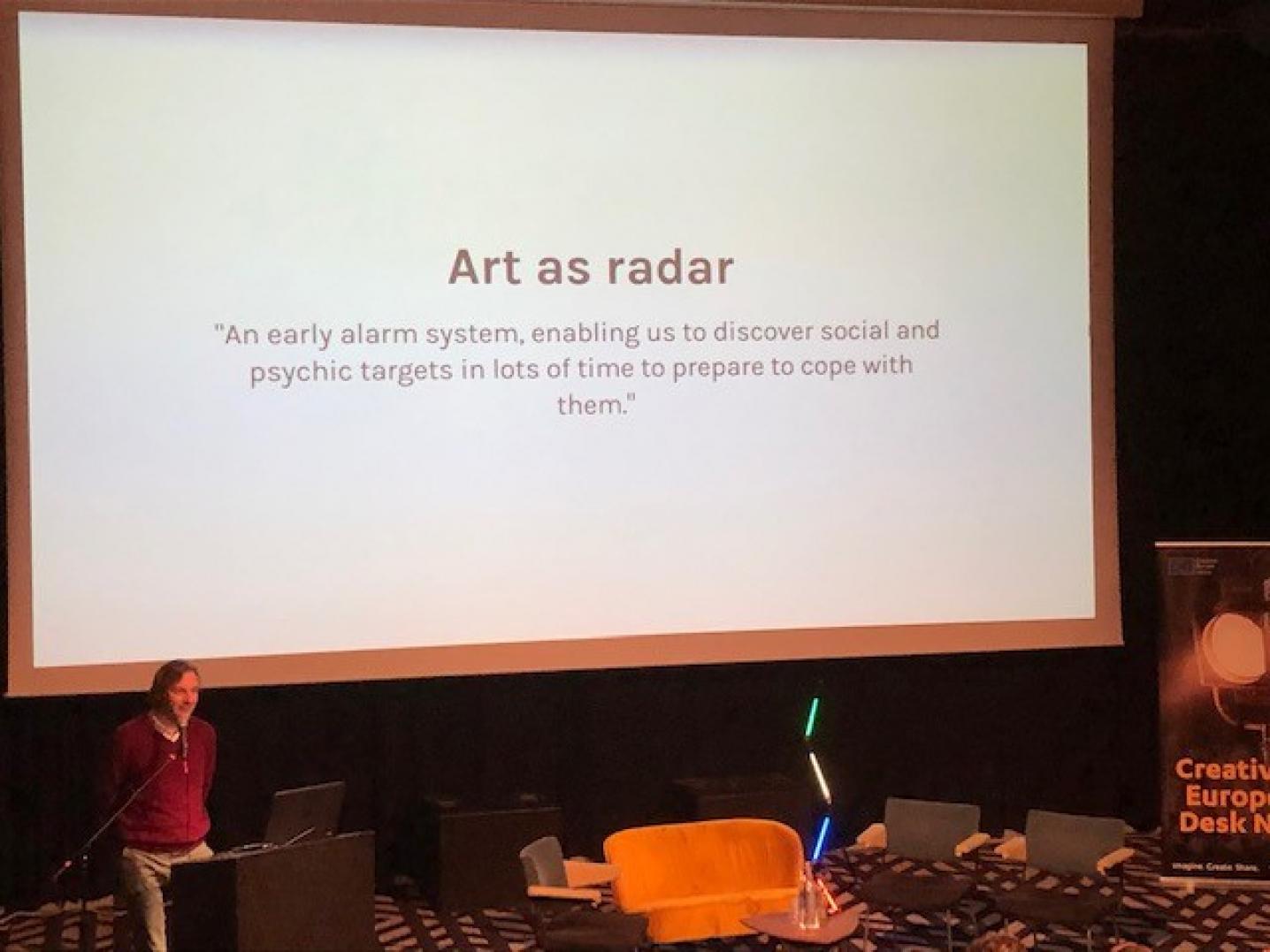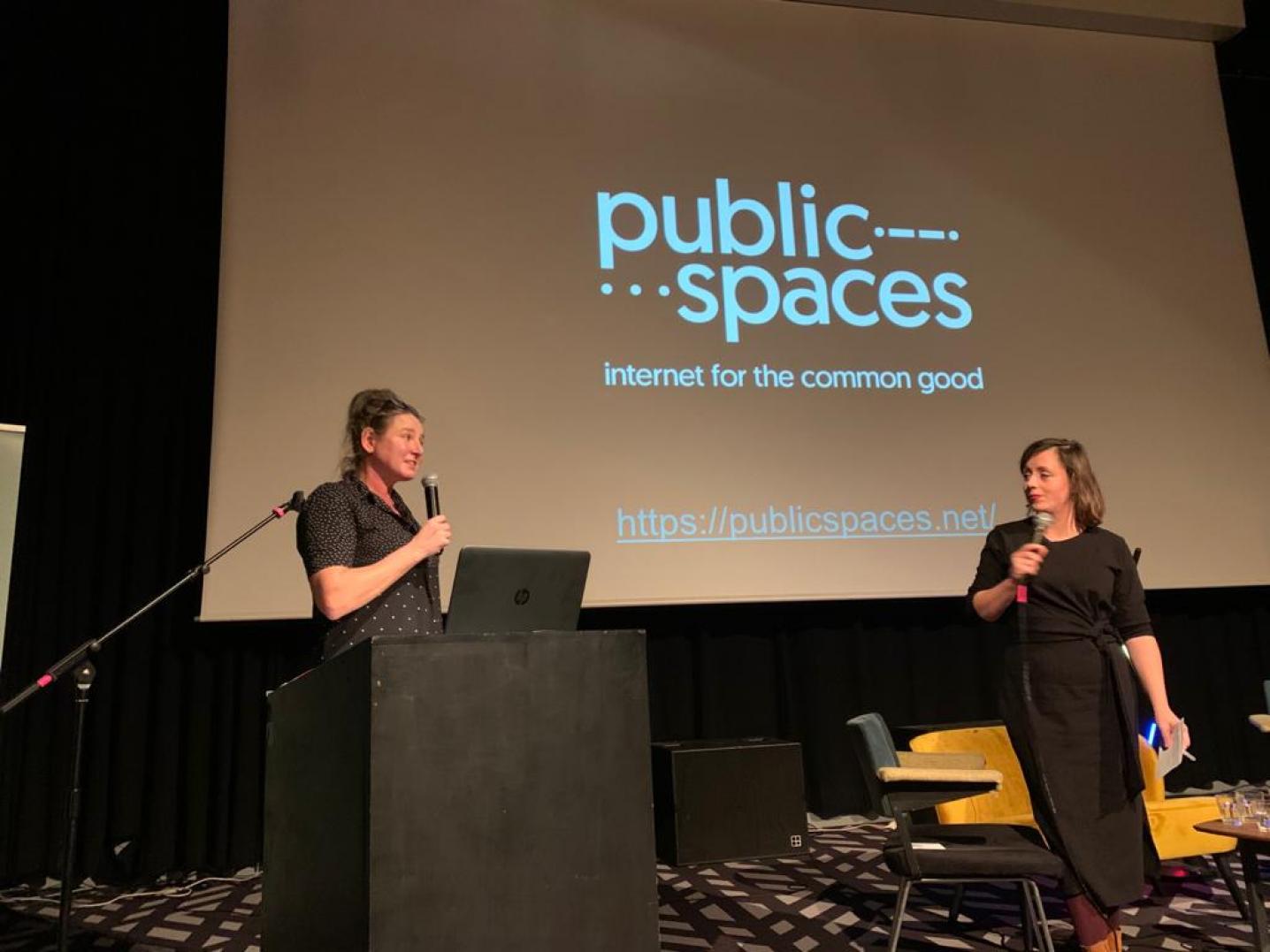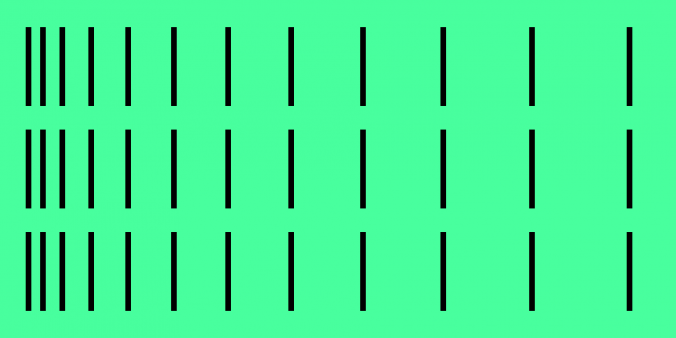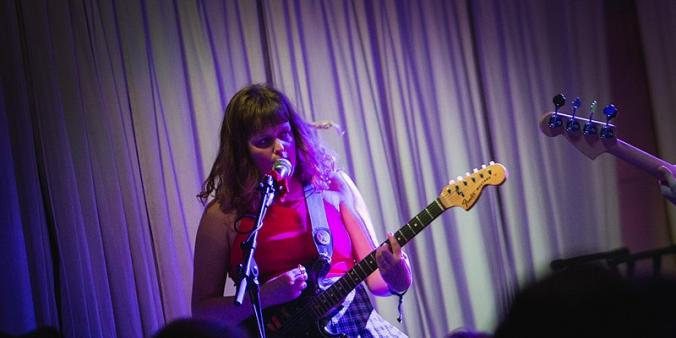
Digitalisation, blessing or curse? “The biggest challenge is to reach critical mass, enabling us to make a real difference”
Digitalisation, is it a blessing or a curse? It was the topic of the day during this year’s Europe Day, organised by DutchCulture together with Creative Europe Desk and Europe for Citizens. The ongoing digitalisation of our society has far-reaching consequences, also for those working in the cultural sector. So should the arts embrace the latest developments in information technology? Or do we need to take drastic measures to protect our privacy, democracy and freedom of expression? The event, which featured various talks and breakout sessions, aimed to shed light on these complex issues through interactive workshops and Q&As with the speakers.
“All technology has a political dimension”
During his keynote speech, Hans de Zwart, former Executive Director of the Dutch digital civil rights organisation Bits of Freedom, argued that technology is never neutral. Not everyone would agree. The NRA, for instance, is famous for their statement that guns don’t kill people, people kill people. But De Zwart is quick to label this simplistic explanation a fallacy: "Of course you can also use a gun to hammer a nail into a wall. But the intent of the design is to kill. So don’t be surprised when a gun is used to kill”, he says.
According to De Zwart, technology often plays an important part in how our society is organised. "The people who design the technology often don't consider what they make to be political. But whether or not they are aware of this, all technology still has a political dimension. And every technological development forces certain political decisions. In his book The Wealth of Networks, author Yochai Benkler writes: ‘Technology creates feasibility spaces for social practice. Some things become easier and cheaper, others harder and more expensive.’ You cannot create technology without embedded values. For instance, if you decide to start producing nuclear power, you’re forced to utilise a centralised organisation with lots of governance and policy structures. The technology cannot function without it.”

Reclaiming public spaces online
Researcher and educator in the field of new media and digital culture Paulien Dresscher feels that reclaiming public space online is a crucial first step in the right direction. "Right now, people are being forced to communicate through commercial and data-slurping platforms like Google and Facebook simply because there isn't an alternative. The entire internet is dominated by American corporations, whose manner of working is mostly non-transparent. That's a huge problem, but there is a better way."
To break the current mould, 19 Dutch and (semi-)public organisations initiated PublicSpaces: an organisation bent on reclaiming the internet as a force for good, based on five core principles: being open, transparent, accountable, sovereign and user centric. PublicSpaces is currently developing various open-source solutions, including a set of badges that can be used as proof of core values (based on privacy, transparency and how data is processed) and PeerTube, an alternative to YouTube. “In the Netherlands alone we are collaborating together with nineteen different cultural organisations who together represent over four million users,” says Dresscher. “We’re also working with other initiatives to form a European coalition and apply for funding through the Horizon 2020 EU Research and Innovation programme. So far, we are funded through Dutch organisations, the partners of the coalition and a smaller European programme. The biggest challenge is to reach critical mass, enabling us to make a real difference. Which is exactly why this coalition is so promising: each partner already has its own audiences, and together we are working on building an international ecosystem to create awareness, to build new tools, and to further develop existing ones."
European values
According to Dresscher, it makes perfect sense to focus on Europe as a starting point for a new digital landscape. “Of course we don’t want to exclude America completely, but currently the five major tech companies are all US based, and their core business centres on profit. Here in Europe, public values are embedded in the culture. I think we place more value on quality of life, autonomy and privacy. Perhaps we care a bit less about financial wealth and more about personal happiness. The Netherlands is known as a very liveable country, where people can afford to take time off during weekends and go on holiday several times a year. Our work and life ethics are different from Americans. And so it’s hugely worrying when in Europe corporations like Amazon, Google and Facebook start dictating the rules, and we no longer live according to our own European policies. Right now, the seat of power is somewhere far away and the use of data and knowledge remains non-transparent. Our government, as well as the general public, has neglected this for far too long, and is now just beginning to realise the consequences. It needs to change."
Some of these changes have already begun to materialise. In France, Netflix was recently ordered to start paying taxes, and the revenues are being used to help fund platforms such as the open-source and ethical social network Okuna. Dresscher: “I have no idea what the public space will look like in, say, ten years from now. But I do know that if we do nothing, things will continue to deteriorate. And people are already dissatisfied. We are becoming increasingly aware of the downside of all these algorithms and market driven 'social' media – tracking and tracing us, telling us what we should be eating for dinner and which clothes we want to wear. Nothing comes for free. But slowly, things are beginning to change. It’s a positive development.”
Socially engaged art
De Zwart emphasises that the importance of the decisions made in Europe cannot be underestimated. “Therefore it’s crucial that socially engaged artists target Europe as a whole,” he says. “It’s important to relate to European themes and to put them on the agenda. That’s not an easy thing, as Europe is generally viewed as something abstract and intangible. Exactly what constitutes Europe? Is it really a democracy? Is there such a thing as a European identity? Philosopher Marshall McLuhan viewed artists as radars, as an early warning system, because they are able to foresee certain developments years in advance. Politics is about storytelling, and whoever has the best and most credible story often gets their way. And storytelling is something that the cultural sector excels in. I don’t think we should look to the arts for an answer. But for me, art that focuses on social politics and socio-critical art is the most interesting. Artists are great at explaining things and influencing others. They are uniquely qualified to offer a new and interesting European perspective.”




